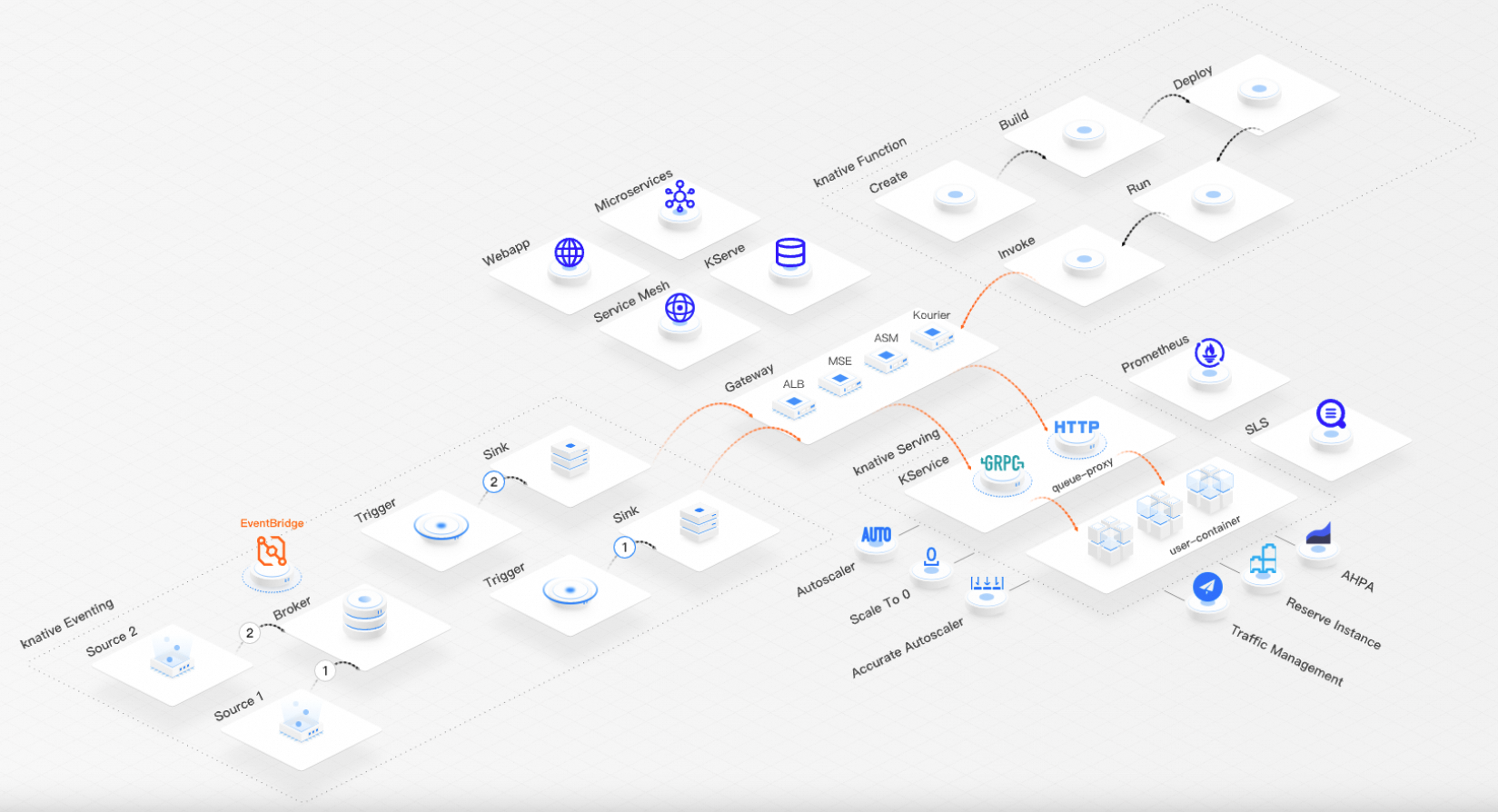Knative is a Kubernetes-based serverless framework. The purpose of Knative is to create a cloud-native and cross-platform orchestration standard for serverless applications. Knative integrates the creation of containers, workload management, and event models, to help you create an enterprise-level serverless platform to deploy and manage serverless workloads.
Introduction
Container Service for Kubernetes (ACK) Knative is completely compatible with open source Knative and is interfaced with ACK, message services, storage services, and networking services to provide production-level capabilities.

As a general-purpose serverless framework, Knative consists of the following core components:
Knative Serving: manages serverless workloads to provide services to users. It offers features such as pod auto scaling and canary release. If no workload is processed, the number of pods is scaled to zero.
Knative Eventing: provides a complete set of event management capabilities for serverless event-driven models, including event ingestion, registry, subscription, filtering, and triggering. The event model effectively decouples event producers and consumers. An event producer can generate events before event consumers are running. An event consumer can listen to events before producers start to produce events.
Knative Function: simplifies the process of creating, building, and deploying Knative Services. You can use Knative Function to deploy stateless, event-driven functions as Knative Services to a Kubernetes cluster without the need to master the underlying technologies, such as Kubernetes, containers, and Knative.
Usage notes
You can deploy Knative in a registered cluster. To do this, the following requirements must be met:
A registered cluster is created and a self-managed Kubernetes cluster that runs Kubernetes 1.18 or later is connected to the registered cluster. For more information, see Create a registered cluster.
A kubectl client is connected to the registered cluster. For more information, see Obtain the kubeconfig file of a cluster and use kubectl to connect to the cluster.
Only self-managed Kubernetes clusters in the Calico route reflection mode or the Cilium Border Gateway Protocol (BGP) route mode are supported.
Usage notes for references
Feature | Reference |
Knative release notes | |
Comparison between Alibaba Cloud Knative and open source Knative | Comparison between Alibaba Cloud Knative and open-source Knative |
Manage Knative components | |
Manage Knative Services | |
Knative Eventing | |
KServe | |
Best practices |